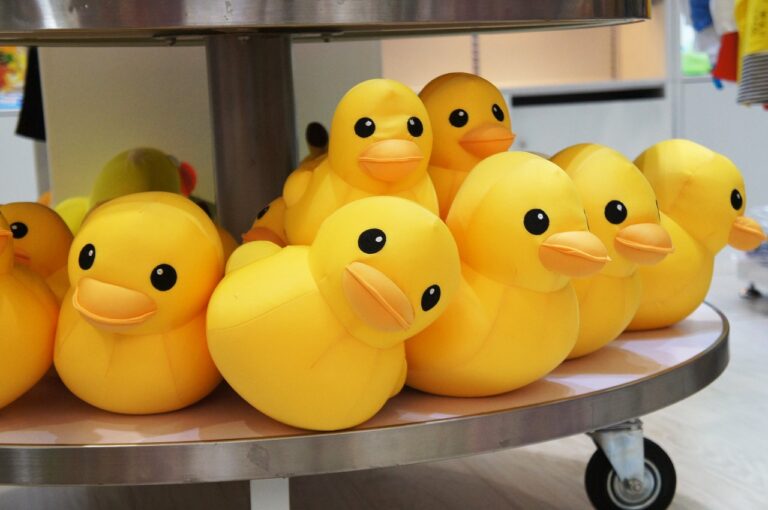The Future of Music Production and Gesture Control
play exchange 99, lotus365 login, playxchange:The music industry has seen significant advancements in technology in recent years, revolutionizing the way music is produced and consumed. One of the most exciting developments in music production is the integration of gesture control technology. This innovative approach allows music producers to manipulate sounds and create music using hand movements and gestures, opening up a world of possibilities for creativity and experimentation.
With the rise of gesture-controlled music production tools, the future of music production looks brighter than ever. In this blog post, we will explore the potential impact of gesture control on the music production industry and discuss how this technology is shaping the future of music creation.
The Rise of Gesture Control in Music Production
Gesture control technology has been gaining traction in the music industry, thanks to advancements in sensors and software. These technologies allow music producers to interact with music production software using hand movements, gestures, and body movements, providing a more intuitive and immersive way to create music.
One of the pioneers in gesture-controlled music production is the Leap Motion Controller, a small device that can track hand movements with precision and accuracy. This device allows music producers to manipulate sounds, adjust parameters, and trigger samples simply by moving their hands in the air. With the Leap Motion Controller, music production becomes a physical and visceral experience, blurring the lines between the physical and digital worlds.
Another exciting development in gesture control technology is the use of virtual reality (VR) and augmented reality (AR) for music production. VR and AR technology enable music producers to create music in immersive 3D environments, using gestures and movements to interact with virtual instruments and effects. These technologies provide a new level of creativity and experimentation, allowing music producers to push the boundaries of traditional music production techniques.
The Benefits of Gesture Control in Music Production
Gesture control technology offers a range of benefits to music producers, making the music production process more intuitive, interactive, and expressive. Some of the key benefits of gesture control in music production include:
1. Intuitive Interaction: Gesture control technology provides a more natural and intuitive way to interact with music production software, allowing music producers to express their creativity through physical movements and gestures.
2. Creative Exploration: Gesture control opens up new possibilities for creative exploration, enabling music producers to experiment with different sounds, effects, and arrangements in real-time.
3. Expressive Performance: By using gestures and movements to manipulate sounds, music producers can add a new layer of expressiveness to their music, creating dynamic and immersive performances.
4. Hands-Free Operation: Gesture control technology eliminates the need for physical controllers and interfaces, allowing music producers to focus on their creative process without being tied down by hardware.
5. Enhanced Collaboration: Gesture-controlled music production tools can facilitate collaboration between musicians, enabling them to create music together in real-time using gestures and movements.
The Future of Music Production with Gesture Control
As gesture control technology continues to evolve, the future of music production looks more exciting than ever. With advances in sensors, artificial intelligence, and machine learning, music producers can expect even more innovative and immersive ways to create music using gestures and movements.
In the future, we can expect to see gesture control technology integrated into a wide range of music production tools and software, making it easier for music producers to create music in a more intuitive and interactive way. From virtual reality environments to motion-sensing controllers, the possibilities for gesture-controlled music production are endless.
As music production becomes more accessible and interactive, we can expect to see a new wave of creativity and innovation in the music industry. Gesture control technology has the potential to revolutionize the way music is produced and performed, opening up new possibilities for musicians, producers, and audiences alike.
With the rise of gesture control in music production, we can look forward to a future where music creation is more immersive, expressive, and collaborative than ever before. Whether you’re a seasoned music producer or a budding musician, gesture control technology offers an exciting opportunity to explore new ways of creating and experiencing music.
FAQs
Q: How does gesture control technology work in music production?
A: Gesture control technology uses sensors and software to track hand movements, gestures, and body movements, allowing music producers to interact with music production software in a more intuitive and interactive way.
Q: What are some popular gesture control devices for music production?
A: Some popular gesture control devices for music production include the Leap Motion Controller, MIDI controllers with gesture control features, and virtual reality/augmented reality systems for music production.
Q: Can gesture control technology be used for live performances?
A: Yes, gesture control technology can be used for live performances, allowing musicians to manipulate sounds and effects in real-time using hand movements and gestures.
Q: Is gesture control technology accessible to all musicians and producers?
A: Gesture control technology is becoming more accessible to musicians and producers, with a range of affordable devices and software options available on the market.
Q: What are some advantages of using gesture control in music production?
A: Some advantages of using gesture control in music production include intuitive interaction, creative exploration, expressive performance, hands-free operation, and enhanced collaboration between musicians.
In conclusion, the future of music production looks bright with the integration of gesture control technology. Music producers can expect a more immersive, interactive, and expressive way to create music, thanks to advancements in sensors, software, and virtual reality/augmented reality technology. As gesture control continues to evolve, we can look forward to a new era of creativity and innovation in the music industry. Whether you’re a seasoned music producer or a budding musician, gesture control technology offers a world of possibilities for creating and experiencing music in a whole new way.







